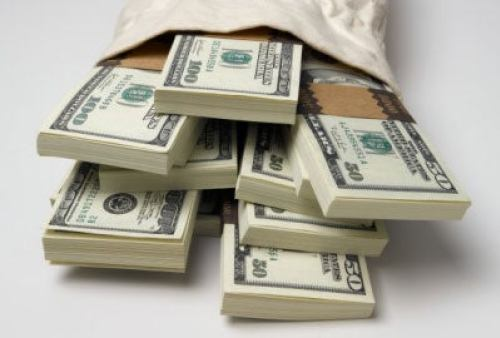
Let’s stop the use of the dollar as second legal tender
Last week, the Bank of Ghana (BoG) issued a stern warning to businesses and the public, asking them to desist from selling the country's currency, the cedi, and pesewa coins or face prosecution.
It said the act of giving a high value of the currency to people for lower values to meet their needs was illegal and punishable by summary conviction to a term of imprisonment not exceeding 10 years or a fine not exceeding 2,000 penalty units or both.
In a public notice, the central bank said any trading of the currency, regardless of the purpose, was criminal and, therefore, prohibited.
It was emphatic when it said, however, that the warning was not applicable to persons who engaged in "money exchange for the purpose of making some denominations available to others who need them”.
Much as the Daily Graphic would want to commend the BoG for the directive, we would want it to take steps to ensure that those in violation of the law are brought to book. We have witnessed many instances when similar directives had been issued and, yet, no concrete action was taken, a situation which allowed those involved in that act to continue to perpetrate the illegalities.
It is now time to ensure that the laws work because it will take the same institution that issued the directive to make it work.
Another worrying concern is the increasing dollarisation of the economy, which requires the BoG to take immediate steps to reverse or stop it.
We find it not only unfortunate but also very defeatist when individuals and companies charge in foreign currency, particularly the US dollar, for their goods and services.
By law, the cedi is the only legal tender in Ghana and, therefore, no other currency should be used as a means of payment under any circumstance.
The Daily Graphic recalls that in May last year, the BoG issued a directive to the public to use only the Ghana cedi and pesewas to pay for goods and services in the country or be punished.
In a press statement, the central bank said although the Foreign Exchange Act, 2006 (Act 723) prohibited the pricing and the payment in currencies other than the local currency, it had noticed that some institutions, companies and individuals were dealing in the "business of foreign exchange trade without authorisation from the bank.
For us, if the bank is aware of the consequences of the use of a foreign currency, which is not legal tender in the country, alongside the cedi, then it should not waste time in apprehending those in that act.
It is not difficult to find such offenders because most of them openly advertise their services and products publicly in dollars.
The Daily Graphic is aware of a lot of literature which states emphatically that businesses and individuals will only find solace in a foreign currency which is not legal tender in a country only if they have lost confidence in the country’s currency.
We find it necessary for the Bank of Ghana, as the institution in charge of monetary policy, to immediately reverse the trend to restore full confidence not only in our currency but in the economy.
It is long overdue and like our neighbours, we must use only what is our legal tender as a means of payment in the country. If the Bank of Ghana has duly authorised some institutions to charge in dollars, same must be advertised for the public to know.
Finally we will also want to prevail on state institutions that are fond of paying for goods and services in dollars to desist from the practice because their actions also give oxygen to the private sector players involved in the illegal act.
